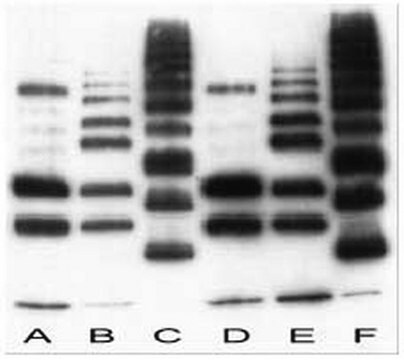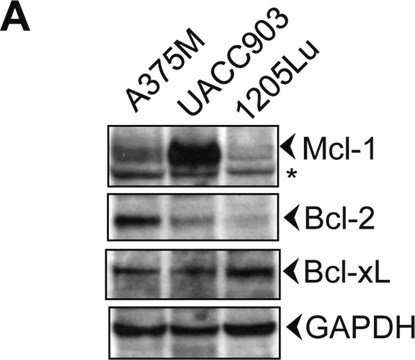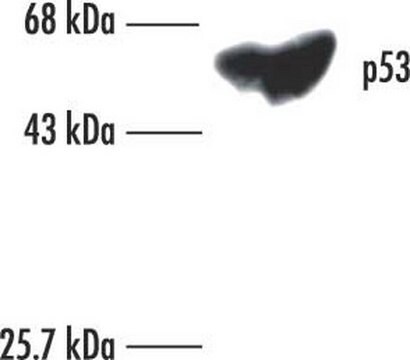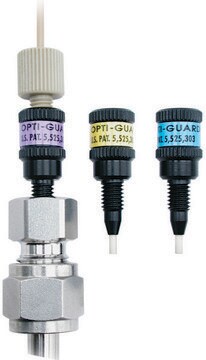05-224
Anti-p53 Antibody, clone BP53-12
clone BP53-12, Upstate®, from mouse
Sinônimo(s):
Anti-BCC7, Anti-BMFS5, Anti-LFS1, Anti-P53, Anti-TRP53
About This Item
Produtos recomendados
fonte biológica
mouse
Nível de qualidade
forma do anticorpo
purified immunoglobulin
tipo de produto de anticorpo
primary antibodies
clone
BP53-12, monoclonal
reatividade de espécies
human
embalagem
antibody small pack of 25 μL
fabricante/nome comercial
Upstate®
técnica(s)
immunohistochemistry: suitable
immunoprecipitation (IP): suitable
western blot: suitable
Isotipo
IgG2a
nº de adesão NCBI
nº de adesão UniProt
Condições de expedição
dry ice
modificação pós-traducional do alvo
unmodified
Informações sobre genes
human ... TP53(7157)
Descrição geral
Especificidade
Imunogênio
Aplicação
Epigenetics & Nuclear Function
Transcription Factors
Qualidade
Descrição-alvo
Ligação
forma física
Armazenamento e estabilidade
Nota de análise
Raji cell lysate
Outras notas
Informações legais
Exoneração de responsabilidade
Não está encontrando o produto certo?
Experimente o nosso Ferramenta de seleção de produtos.
recomendado
Código de classe de armazenamento
10 - Combustible liquids
Classe de risco de água (WGK)
WGK 1
Certificados de análise (COA)
Busque Certificados de análise (COA) digitando o Número do Lote do produto. Os números de lote e remessa podem ser encontrados no rótulo de um produto após a palavra “Lot” ou “Batch”.
Já possui este produto?
Encontre a documentação dos produtos que você adquiriu recentemente na biblioteca de documentos.
Nossa equipe de cientistas tem experiência em todas as áreas de pesquisa, incluindo Life Sciences, ciência de materiais, síntese química, cromatografia, química analítica e muitas outras.
Entre em contato com a assistência técnica








